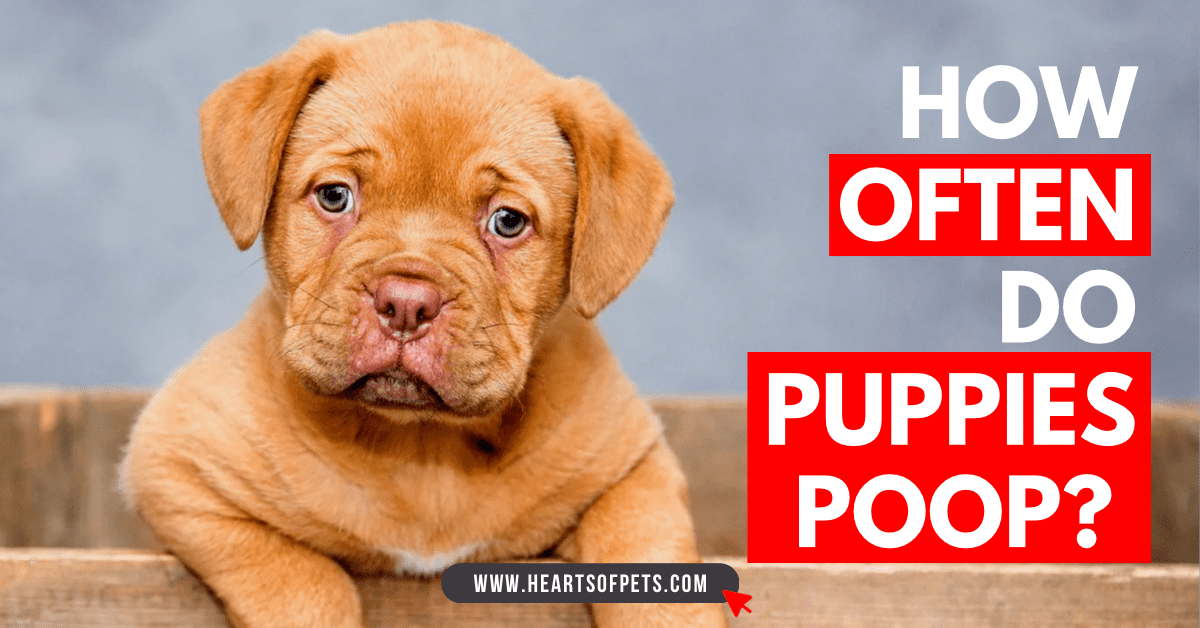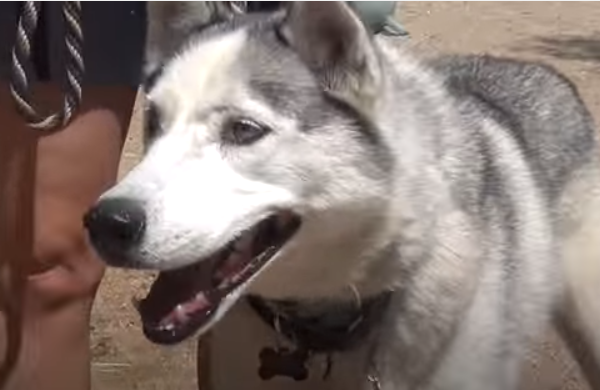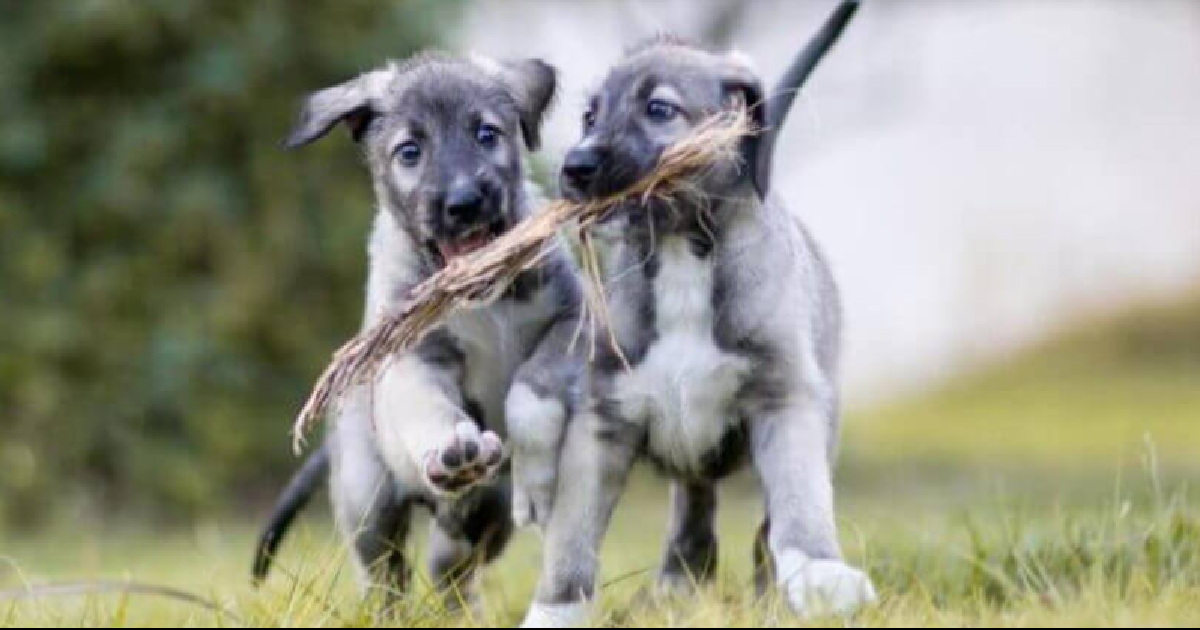Dogs are notorious for licking their paws, which can be annoying when they do it indoors. Luckily, there are a few remedies you can use to stop your dog from licking his paws. This blog post will discuss three of the most popular methods. However, remember that some of these remedies may take time, so be patient.
When to Worry About Paw Licking
If your dog is incessantly licking its paws and there are no visible signs of injury or skin irritations, it could be something more serious such as arthritis or infection. However, if your pup doesn’t seem to stop licking its paws despite your efforts to distract them (e.g., giving them toys and treats), it’s time to take them to the vet for a checkup.
Your vet will be able to diagnose any underlying medical issues that could be causing the excessive licking behavior and recommend a course of treatment accordingly.
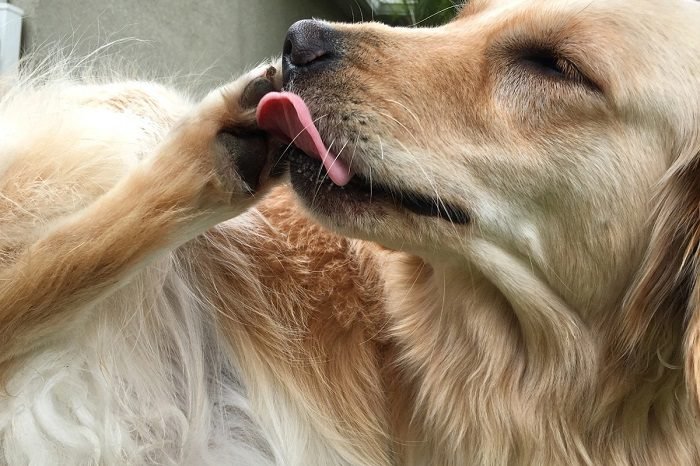
Reasons Why Dogs Lick Their Paws
It’s normal for dogs to lick their paws occasionally, especially when grooming. However, if you’ve ever noticed your dogs licking paws constantly or chewing on them, it’s natural to be concerned. After all, dogs don’t usually do this unless there’s something wrong!
While there are a few reasons your dog licking their paws, anxiety, itchy paws, and pain are the most common causes. So let’s dive into the details to help you understand why your pup is licking its paws and what you can do about it.
Dog’s Anxiety
A common reason for dogs licking their paws excessively is anxiety. If your pup has recently been through a traumatic event, like moving houses or an illness, they may start licking their paws as a coping mechanism. Although anxiety isn’t always easy to spot in pets, some signs include restlessness, trembling, and pacing.
If you think your pet might be anxious due to changes in their environment or lifestyle, try to create a routine for them with plenty of exercise and stimulation throughout the day. This will help reduce any stress they may be feeling.
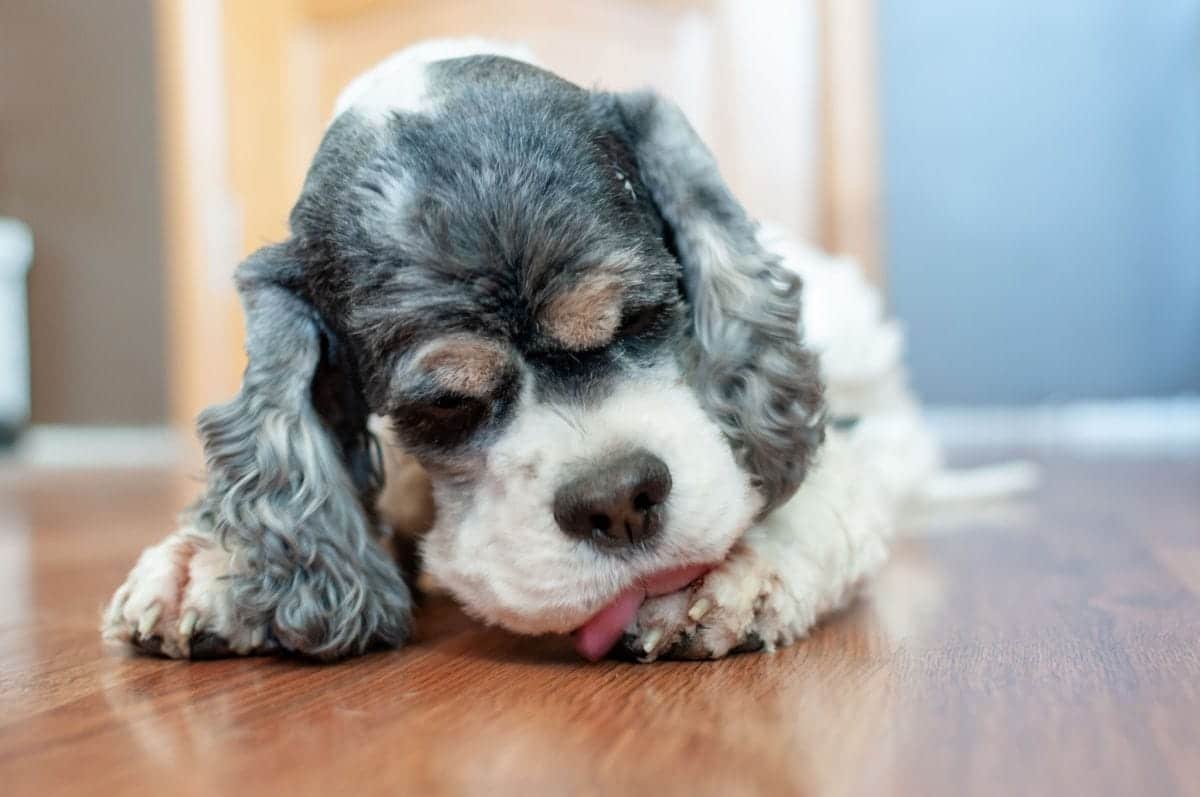
Pain & Arthritis
Another potential cause of paw licking is physical pain caused by arthritis or other joint issues. For example, a stiff joint can cause discomfort, which leads dogs to lick the area around it to soothe themselves.
Additionally, if your pet has sustained an injury that hasn’t healed properly or something stuck between its toes (like a small pebble), this could also result in excessive paw licking. To rule out any underlying medical causes of paw-licking behavior, it’s best to take your pup to the vet for a thorough check-up.
Dry or Cracked Skin
One of the most common reasons why a dog licks their paws is due to dry skin or dryness on the dog’s paw pads. If your pup is constantly licking its paws, it may have dermatitis, dry skin, or itchy skin.
Check for any redness or irritation that may be present. You can also look for signs like excessive shedding, flaking, or scabbing on their feet or legs. Dry skin can be easily treated with a moisturizing paw balm or oil. Just be sure to check with your vet before applying any new products to your pet’s dry paw pads.
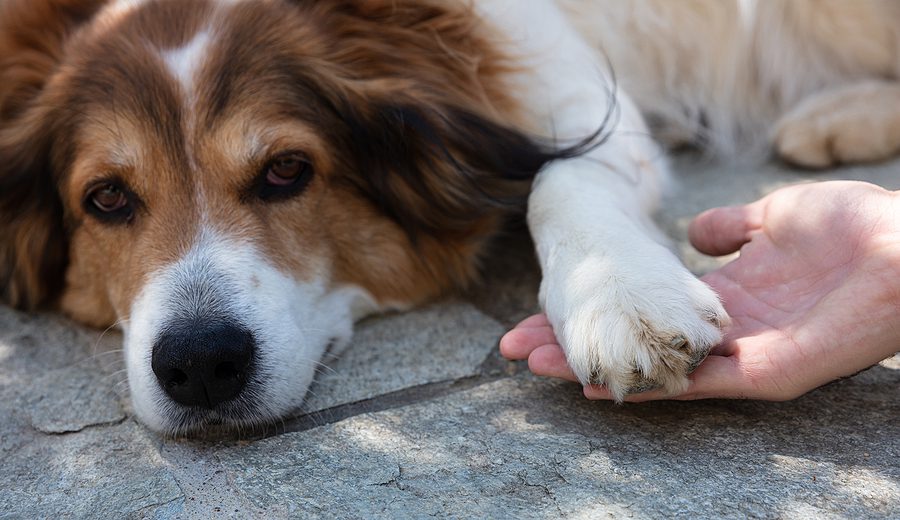
Yeast Infection
Another possible cause of paw licking in dogs is a yeast infection. Yeast infections are caused by an overgrowth of yeast on the skin and can be identified by an odorless discharge from the affected area. If you notice a strong odor coming from your pup’s feet, they may have a yeast infection and should be taken to the vet immediately for treatment.
Allergies & Irritants
Allergens such as pollen and grass can irritate your pup’s skin leading to itchy skin and then excessive paw licking. If you suspect that allergies may be causing your pet’s paw licking, try keeping them away from areas where allergens are present and give them daily baths using a hypoallergenic dog shampoo designed specifically for pets with allergies or sensitive skin.
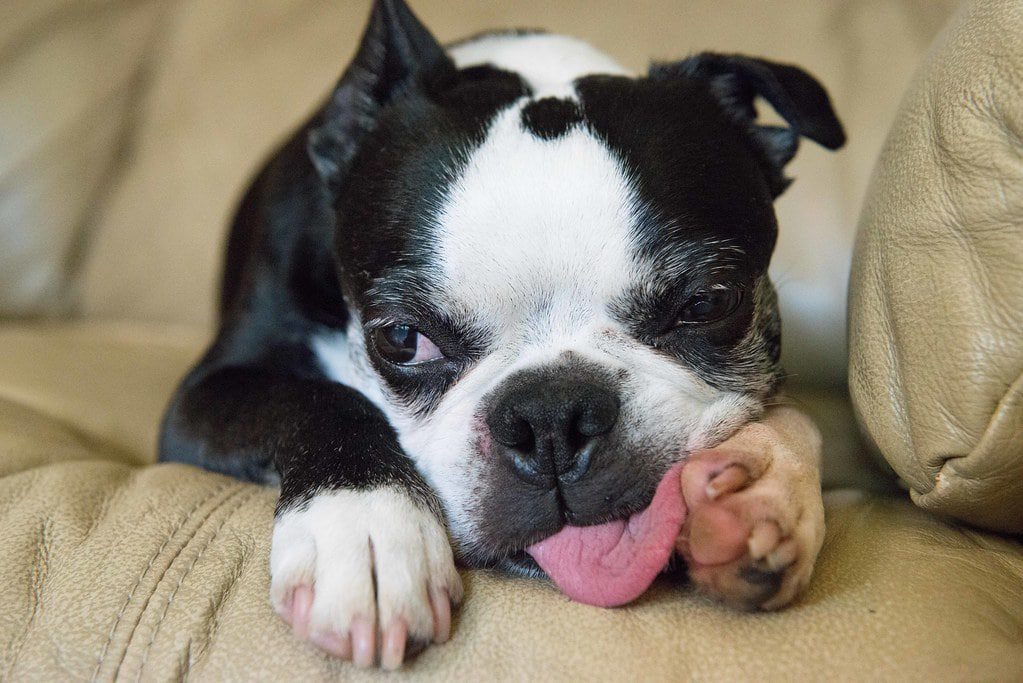
3 Simple Dog Licking Paws Remedies
Dog Licking Paw Remedies Cream
One remedy that many pet owners find helpful is using a special cream on irritated skin. These creams are specially formulated with ingredients that discourage constant licking paws and chewing while helping promote healing and soothing the dog’s skin irritation.
They often contain natural ingredients such as aloe vera, vitamin E, chamomile extract, and tea tree oil which all help promote healing and soothe itching skin. Be sure to follow the instructions on the package when applying the cream. Also, keep an eye out for any signs of irritation or redness, as these could indicate sensitivity or allergies to an ingredient in the cream.
Top 3 Best Sprays to Stop Dogs From Licking Paws
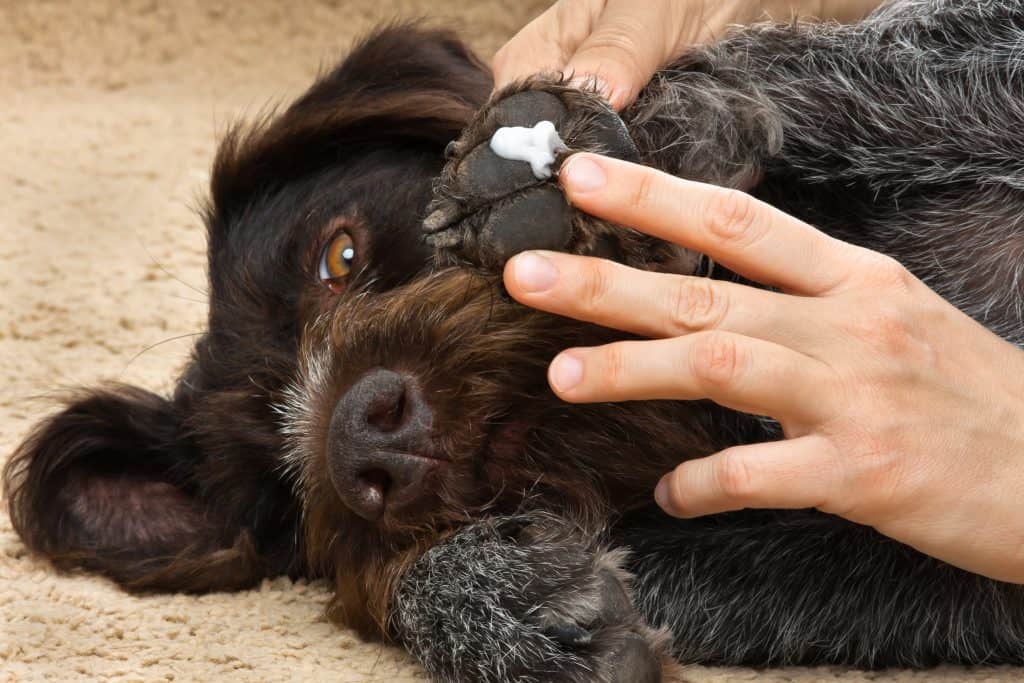
Probiotics
Another remedy is giving your pup probiotics. Probiotics can help balance out your pup’s digestive system, reducing inflammation in the body that may be causing them to lick their paws to relieve itchiness or discomfort. You can give your dog probiotic supplements or buy probiotic-rich dog food for them to eat. Make sure you talk to your vet before making any diet changes!
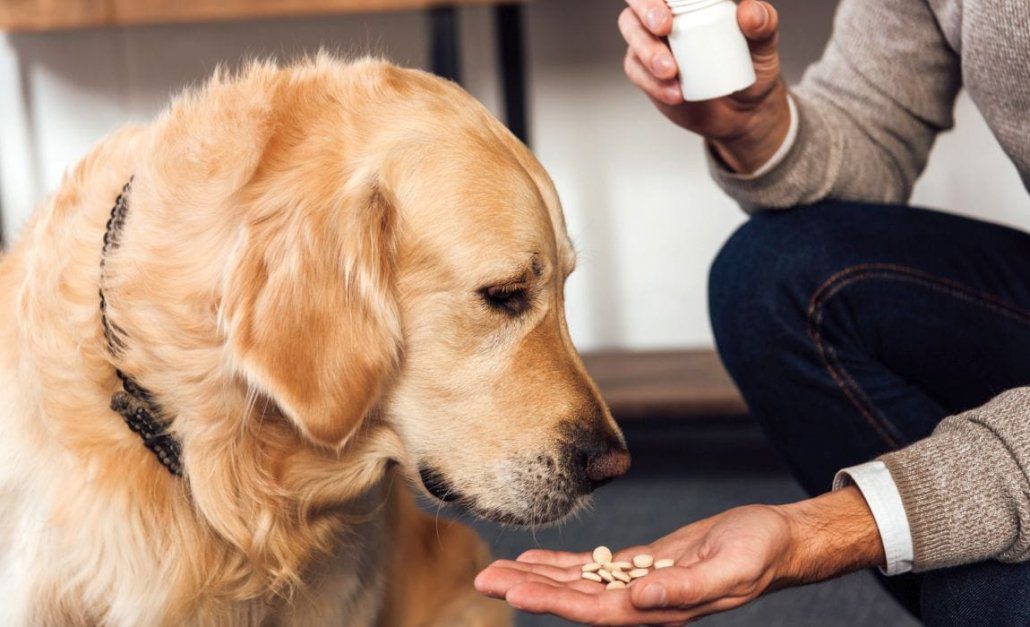
Distraction Toys
Finally, you can try giving your pup distraction toys whenever they kick their paws too much. These toys should be durable, last through many playtimes, and are explicitly designed for heavy chewers like bulldogs or huskies.
Make sure you rotate out different toys every few days, so they don’t get bored with the same old thing! You could also try playing fetch with them to provide physical and mental stimulation, which may help reduce anxiety and stop them from licking their paws too much.
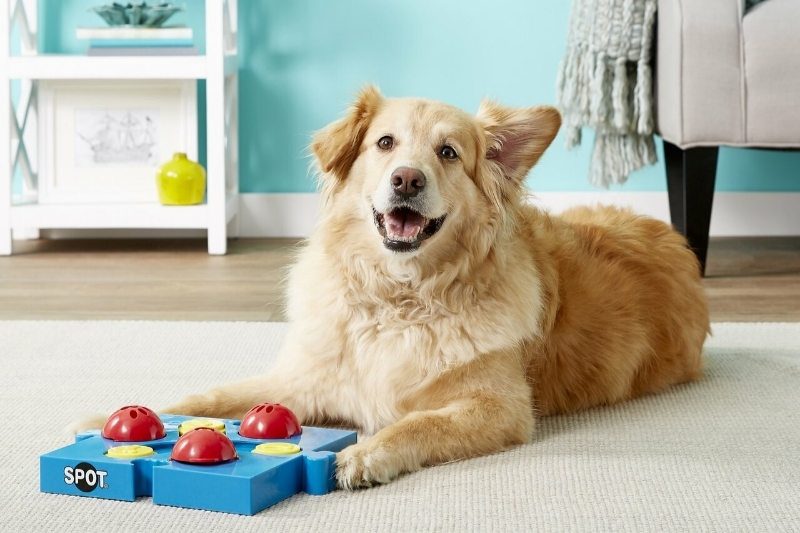
How to Stop My Dog From Paw Licking
Check for Signs of Allergies or Parasites
The first step in addressing your dog’s paw licking is to check for signs of allergies or parasites. Dog allergies are caused by environmental irritants such as pollen and dust mites, while parasites may include fleas or ticks.
If your dog is allergic, try using a hypoallergenic shampoo or an allergen-blocking shampoo designed specifically for many dogs with allergies. This will help soothe skin-related irritations, especially for sensitive skin. If you suspect your pet may have picked up parasites, then a trip to the vet is the next step. Your veterinarian will be able to diagnose the issue and recommend treatments accordingly.
The Best Spray to Stop Dog Licking Paws
Provide Distractions From Paw Licking
If no underlying medical conditions are causing your pet’s paw licking, then providing distractions from the behavior is essential. For example, you can engage in activities like playing fetch or offering treats whenever they seem interested in licking their feet.
This will help redirect their attention away from the behavior while reinforcing positive behaviors simultaneously. You could buy a pair of dog booties to protect your dog’s feet. Additionally, ensure that your pup has plenty of toys around the house so they’ll have something else to occupy themselves with when they feel stressed out or bored.
Cut Back On Stressful Situations
Another way to discourage excessive paw licking is to reduce stress levels in stressful situations. For example, taking your pup on regular walks and balancing playtime with stimulating activities such as massage can help reduce stress levels overall and create positive associations between these activities and spending time with you instead of focusing on paw-licking behaviors.
Additionally, if your pup has become overly anxious due to certain stimuli in their environment (e.g., loud noises), try introducing calming techniques such as deep breathing exercises for relaxation purposes during these times when possible (or seek professional help).
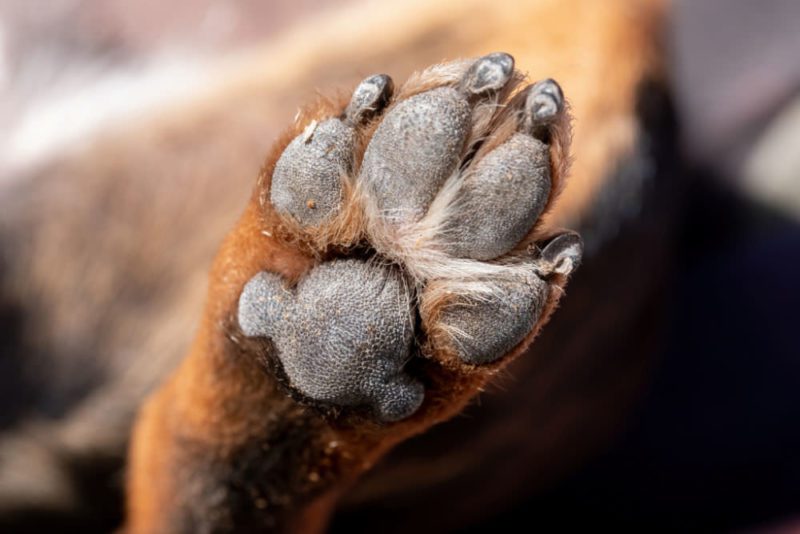
When to See a Vet?
If your pup has been excessively licking its paws for more than 48 hours, then it’s time to make an appointment with your veterinarian. You should also pay attention to any changes in behavior that accompany excessive paw licking, such as increased lethargy or loss of appetite.
If there is any swelling or redness on the foot pads, you should schedule a visit with your vet as soon as possible. Lastly, suppose you notice any bleeding coming from your pup’s feet. In that case, this warrants an immediate visit with your veterinarian, as this could indicate a severe medical condition, such as infection, that needs treatment immediately.
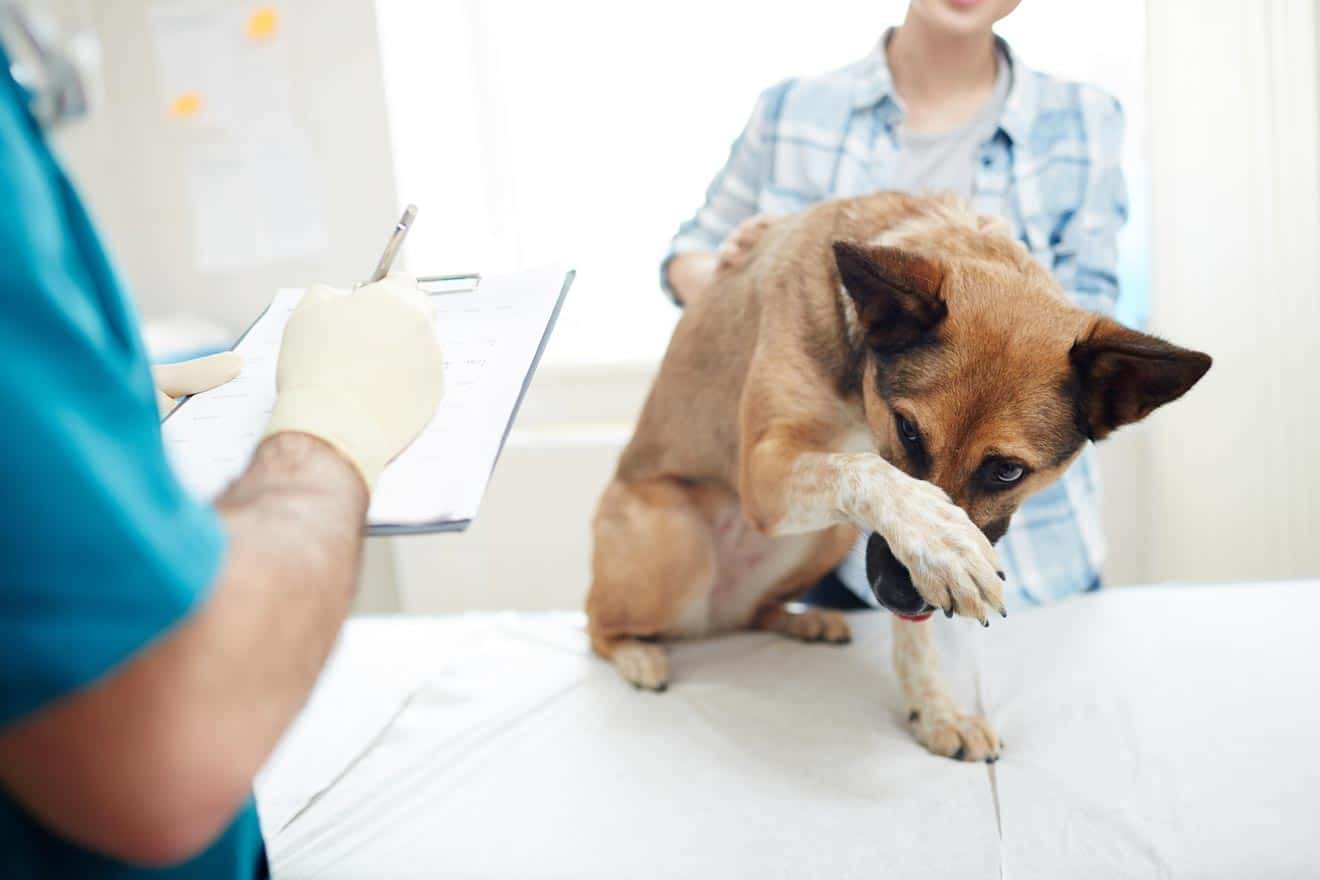
Final Thoughts
In conclusion, dog paw licking can be caused by various reasons and should not be ignored. If your pup is exhibiting signs of allergies or parasites, it’s important to take them to the vet for proper diagnosis and treatment.
Additionally, providing distractions from their habitual paw-licking behavior and reducing stress levels in certain situations are key steps in helping your pup break the habit.
Finally, consult with a veterinarian if you are unsure how best to tackle the issue or if you observe any other signs that may indicate a more serious underlying health condition.
Frequently Asked Questions
WHAT CAN I SPRAY ON MY DOGS’ PAWS TO STOP LICKING?
Mix 1 part organic unfiltered apple cider vinegar with two parts water in a small spray bottle. Spray directly onto your dog’s paws, being careful not to get any solutions in their eyes or nose (since it is an acid). You can use this treatment once per day until you see improvement.
HOW DO I TREAT MY DOG’S IRRITATED PAWS?
When you next notice your pup has wet paws, pour two parts water into one part apple cider vinegar and soak them for 5 minutes. Pat dry or rub with a towel before applying moisturizer as usual.
WHY DOES MY DOG OBSESSIVELY LICK HIS PAWS?
“If your pet is constantly licking their paws, it could be because they are experiencing environmental allergies. Other causes may include ectopic parasites (such as fleas or mites) and joint pain caused by arthritis-related licks toward the feet/limbs that cannot reach this area due to the puppy’s shorter limbs.”
CAN I SPRAY APPLE CIDER VINEGAR ON MY DOGS’ PAWS?
Give your dog some ACV to relieve yeast infections and keep them from getting pesky bugs. When diluted with water in spray bottles, it is a disinfectant and flea repellent.


